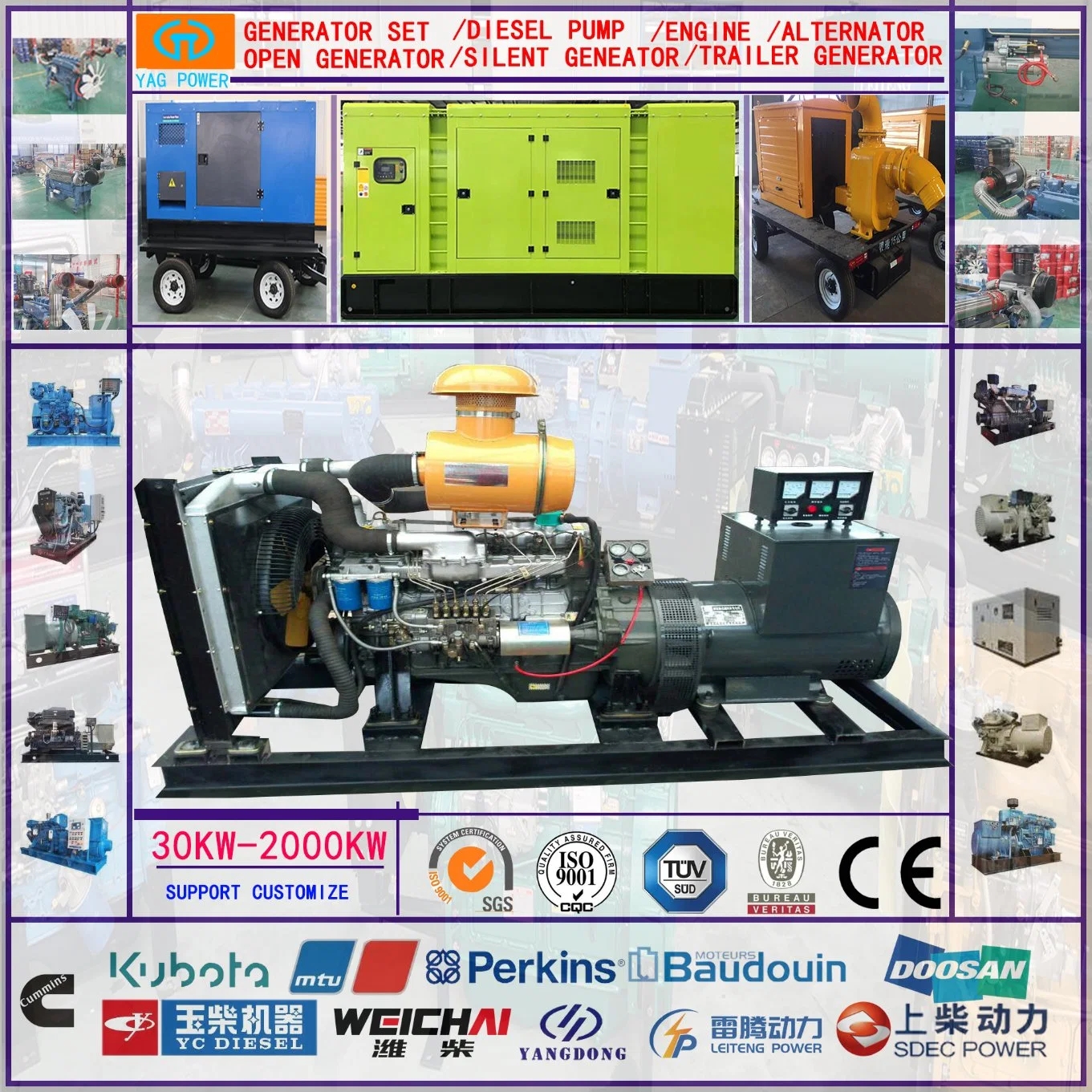Introduction
Farming operations require a reliable and consistent power supply to ensure smooth and efficient functioning. Diesel generators have become an essential component in modern agriculture, providing a dependable source of electricity to power various equipment and machinery on farms. In this article, we will explore the benefits of using diesel generators in farming operations, their applications, maintenance tips, and environmental considerations.

Benefits of Diesel Generators in Farming Operations
1. Reliable Power Supply: One of the primary advantages of diesel generators is their reliability. They can provide a continuous power supply, ensuring that critical farm operations are not disrupted due to power outages or fluctuations. This reliability is crucial for powering irrigation systems, lighting, ventilation, and other essential equipment on the farm.
2. Versatility: Diesel generators are versatile and can be used in a wide range of farming applications. They can power various equipment such as tractors, pumps, grain dryers, and milking machines, making them indispensable for modern agricultural practices.
3. Cost-Effective: Diesel generators are cost-effective in the long run, especially for farms located in remote areas where access to the grid may be limited or unreliable. Diesel fuel is readily available and relatively affordable compared to other fuel sources, making diesel generators a cost-efficient option for powering farming operations.
4. https://www.lkpowerplant.com/product/special-offer-reliable-high-power-200kw-efficient-diesel-generator-set-for-industrial-use/ and Longevity: Diesel generators are known for their durability and longevity. They are built to withstand harsh environmental conditions and heavy usage, making them ideal for the demanding nature of farming operations. With proper maintenance, diesel generators can last for many years, providing a reliable power source for the farm.
Applications of Diesel Generators in Farming
1. Irrigation Systems: Irrigation is essential for crop production, especially in areas with limited rainfall. Diesel generators power irrigation pumps, allowing farmers to water their crops efficiently and effectively. With a reliable source of power, farmers can ensure that their crops receive the necessary moisture for optimal growth and yield.
2. Grain Drying: Properly drying grains is crucial to prevent spoilage and maintain quality. Diesel generators power grain dryers, which remove excess moisture from harvested crops, ensuring that they can be stored safely for extended periods. This is particularly important for farmers who need to preserve their crops for sale or consumption.
3. Livestock Farming: Diesel generators are used in livestock farming operations to power equipment such as feeding systems, ventilation systems, and lighting in barns and poultry houses. A consistent source of power is essential for maintaining the health and well-being of livestock, ensuring that they receive proper care and nutrition.
4. Farm Machinery: Diesel generators are used to power a wide range of farm machinery, including tractors, combines, and harvesters. These machines require a reliable source of power to operate efficiently in the field, and diesel generators provide the necessary energy to keep them running smoothly.
Maintenance Tips for Diesel Generators
Proper maintenance is essential to ensure the smooth and efficient operation of diesel generators on the farm. Here are some maintenance tips to keep in mind:
1. Regular Inspections: Conduct regular inspections of the generator to check for any signs of wear and tear, leaks, or other issues that may affect its performance. Inspect the fuel, oil, and coolant levels regularly and top them up as needed.
2. Oil and Filter Changes: Change the oil and filters at recommended intervals to keep the engine running smoothly. Clean oil and filters help to reduce friction and wear, prolonging the life of the generator.
3. Fuel Quality: Use clean and high-quality diesel fuel to prevent contamination and ensure optimal performance of the generator. Keep fuel storage tanks clean and free from water, dirt, and other impurities that can damage the engine.
4. Battery Maintenance: Check the battery regularly for corrosion, loose connections, and proper voltage levels. Clean the terminals and connections to ensure a strong electrical connection and reliable starting power.
5. Cooling System: Keep the cooling system clean and well-maintained to prevent overheating of the generator. Check the coolant levels and inspect hoses and belts for any signs of damage or leaks.
Environmental Considerations
While diesel generators offer numerous benefits for farming operations, it is essential to consider their environmental impact. Diesel generators produce emissions that contribute to air pollution and greenhouse gas emissions, which can have negative effects on the environment and human health. To mitigate these impacts, farmers can take the following steps:
1. Use Energy-Efficient Equipment: Invest in energy-efficient equipment and machinery that require less power to operate, reducing the overall energy consumption of the farm.
2. Opt for Renewable Energy Sources: Consider incorporating renewable energy sources such as solar panels or wind turbines to supplement the power supply from diesel generators. This can help reduce reliance on fossil fuels and lower carbon emissions.
3. Properly Maintain Generators: Regular maintenance of diesel generators can help improve their efficiency and reduce emissions. Clean filters, proper tuning, and timely repairs can all contribute to reducing the environmental impact of diesel generators.
4. Explore Alternative Fuels: Consider using biodiesel or other alternative fuels in place of traditional diesel fuel to lower greenhouse gas emissions and promote sustainability in farming operations.
Conclusion
Diesel generators play a vital role in modern farming operations, providing a reliable and versatile source of power for a wide range of applications. Their durability, cost-effectiveness, and versatility make them indispensable for powering essential equipment and machinery on the farm. By following proper maintenance practices and considering environmental impacts, farmers can maximize the efficiency and productivity of their operations while minimizing their environmental footprint. Diesel generators will continue to be a cornerstone of agricultural practices, ensuring that farms have the power they need to thrive and succeed.
